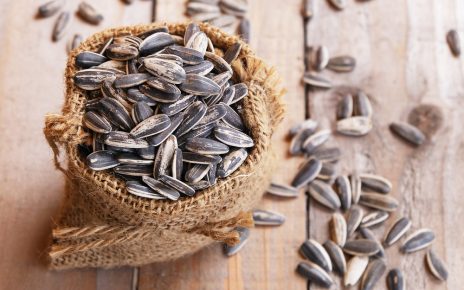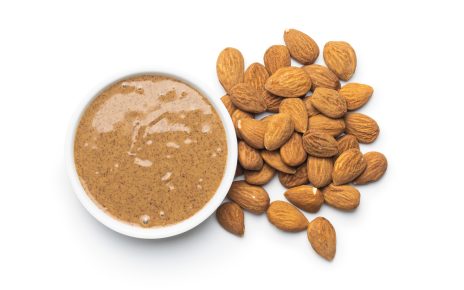If you’re following a keto diet, you know how challenging it can be to find sweeteners that won’t kick you out of ketosis. Luckily, there are some options available, including allulose. But is allulose truly keto-friendly? In this article, we’ll explore what the keto diet entails, what allulose is, and whether or not it’s a good option for those on a ketogenic diet.
Firstly, let’s discuss the basics of the keto diet. The goal of this high-fat, low-carb eating plan is to put your body into a state of ketosis where it burns fat for fuel instead of glucose from carbohydrates. This metabolic state can lead to weight loss and improved health markers such as blood sugar control and cholesterol levels. However, since carbs must be severely limited on the keto diet, finding alternatives to traditional sweeteners like sugar can be tricky. That’s where allulose comes in – but how does it fit into this way of eating?
Understanding the Keto Diet
If you’re on the keto diet, you’ll want to know that allulose is a great option for satisfying your sweet tooth without going off track! But before we delve into whether or not allulose is keto-friendly, let’s first understand what the keto diet is and how it works.
Contrary to popular belief, the ketogenic diet isn’t just about eating bacon and cheese all day long. It’s a high-fat, low-carb way of eating that forces your body to burn fat for fuel instead of glucose. This metabolic state is called ketosis, which is achieved by drastically reducing carbohydrate intake and increasing fat consumption. However, there are several misconceptions about the keto diet that can hinder your progress.
One common misconception is that you can eat as much fat as you want on the keto diet. While it’s true that fats should make up a significant portion of your daily caloric intake, consuming excessive amounts of unhealthy fats can lead to weight gain and other health issues. To stay in ketosis and reap the benefits of this dietary approach, it’s important to choose healthy sources of fats such as avocados, nuts, seeds, olive oil, and fatty fish.
Another tip for staying in ketosis is to monitor your carb intake closely. Even foods that seem low in carbs such as fruits and vegetables can add up quickly if consumed in large quantities. Additionally, some sugar substitutes like maltitol may have a high glycemic index which could kick you out of ketosis. Allulose however has been shown not to raise blood glucose levels making it ideal for people on the keto diet looking for something sweet without worrying about its effect on their insulin levels.
In conclusion (oops!), understanding what the ketogenic diet entails and debunking common misconceptions can help you stay on track with your weight loss goals while also enjoying sweet treats like allulose without breaking your carb limit or spiking insulin levels – so go ahead and indulge in moderation!
What is Allulose?
You probably already know about this magical sweetener that has the same taste as sugar but without the extra calories – Allulose. This naturally occurring sugar substitute is found in small quantities in fruits like jackfruit, figs, and raisins. It looks, tastes, and behaves like regular table sugar but contains only a fraction of its calories.
Allulose production involves extracting it from natural sources or through a process called enzymatic conversion. The latter method involves converting fructose into allulose using specific enzymes that are later removed before consumption. Unlike other alternative sweeteners such as aspartame or stevia, allulose does not have any aftertaste or bitter notes. Moreover, it does not impact blood glucose levels, making it an excellent choice for people with diabetes.
Many individuals who follow the ketogenic diet use allulose for weight loss purposes since it doesn’t spike insulin levels – a mechanism that can inhibit fat burning in the body. Furthermore, research studies on animals have suggested that consuming allulose can lead to lower body weight gain and fat accumulation than table sugar over time. However, more research is needed to confirm these findings on humans.
Allulose and the Keto Diet
When following a low-carb diet, incorporating a natural sugar substitute like allulose can help satisfy your sweet cravings without impacting insulin levels. Allulose is a keto-friendly sweetener that has zero glycemic impact on the body and does not raise blood sugar levels. This makes it an ideal choice for individuals who are following the ketogenic diet.
Allulose substitutes traditional sugar in recipes in a 1:1 ratio, which means that it is easy to incorporate into your favorite dishes and beverages without affecting the taste or texture of your food. Additionally, allulose has only 10% of the calories of regular sugar, making it an excellent option for those looking to reduce their calorie intake while still enjoying sweets.
Incorporating allulose into your diet can also provide some potential health benefits. Studies have shown that allulose may help improve insulin sensitivity and glucose metabolism in individuals with type 2 diabetes. It also has prebiotic properties that can promote healthy gut bacteria growth.
Overall, if you are on a keto diet and looking for a natural sweetener alternative to traditional sugar without compromising on taste or impacting insulin levels, allulose is an excellent option to consider. By swapping out traditional sugar for allulose substitutes in your recipes, you can enjoy satisfyingly sweet treats while maintaining your low-carb lifestyle goals.
Benefits of Allulose in the Keto Diet
Maximizing the benefits of a low-carb diet is easier than you think with the help of allulose. This sweetener can provide potential health advantages and satisfy your cravings without affecting your blood sugar levels. Allulose is keto-friendly because it contains only 0.4 calories per gram and has a glycemic index of zero, making it an excellent substitute for traditional sweeteners.
Allulose offers nutritional value that other sweeteners lack. It’s packed with antioxidants that can help protect your body from damage caused by free radicals. Additionally, allulose doesn’t promote tooth decay like regular sugar does, which makes it a healthier alternative to satisfy your sweet tooth while sticking to your low-carb diet.
Taste preference is another factor that makes allulose stand out as a keto-friendly sweetener. Unlike other artificial sweeteners on the market, allulose has no aftertaste or bitterness, so you can enjoy its natural sweetness without compromising on taste. Moreover, allulose browns when heated just like regular sugar does, making it perfect for baking and cooking.
Incorporating allulose into your keto diet can be beneficial in many ways. Whether you’re trying to lose weight or maintain a healthy lifestyle, this natural sweetener provides nutritional value and satisfies your cravings without spiking your blood sugar levels. So next time you’re looking for a low-carb option to satisfy your sweet tooth, reach for allulose instead of traditional sugar or artificial sweeteners.
Considerations for Using Allulose on Keto
When considering using allulose on keto, there are a few important things to keep in mind. First and foremost, you’ll need to be mindful of your daily carb limits since even low-carb sweeteners like allulose can add up quickly. Additionally, it’s worth noting that some people may experience potential side effects like bloating or diarrhea when consuming allulose in large amounts. Finally, if you’re not a fan of the taste of allulose or have trouble finding it at your local grocery store, there are plenty of other alternative sweetener options available for those following a keto diet.
Daily Carb Limits
You’ll need to keep an eye on your daily carb intake if you want to stay in ketosis, as the adage goes: “Moderation in all things.” While allulose is a keto-friendly sweetener that doesn’t raise blood sugar or insulin levels, it still contributes to your overall carb count. Here are some tips for managing your daily carb limits while enjoying allulose:
- Keep track of your total carb limit for the day and allocate a portion of it for allulose.
- Consider using allulose sparingly throughout the day instead of consuming it all at once.
- Choose lower-carb options when possible, such as using stevia or monk fruit instead of combining multiple sweeteners.
- Consider maximizing carb intake from nutrient-dense sources like vegetables and nuts rather than high-carb processed foods.
- Be mindful of any sugar cravings that may arise from consuming sweeteners, including allulose.
By keeping these considerations in mind, you can enjoy the benefits of allulose while staying within your daily carb limits and maintaining ketosis.
Potential Side Effects
Now that you know your daily carb limit, let’s talk about the potential side effects of consuming allulose on a keto diet. While it is generally considered safe, there are still possible risks to be aware of.
Some people have reported gastrointestinal issues such as bloating, gas, and diarrhea after consuming large amounts of allulose. To avoid these symptoms, it’s important to follow dosage recommendations and not overdo it with this sweetener. The FDA has approved allulose for use in food and beverages but has not established a maximum daily intake level. However, some experts recommend limiting consumption to around 0.5 grams per kilogram of body weight per day or less to prevent any adverse effects.
Overall, while allulose can be a great addition to your keto diet as a low-carb sweetener alternative, it’s important to listen to your body and consume it in moderation. Remember that everyone reacts differently to different foods and sweeteners, so pay attention to how you feel after consuming allulose and adjust accordingly if needed.
Alternative Sweetener Options
Looking for other sweetener options to add some flavor to your low-carb diet? There are plenty of alternatives available that can help satisfy your sweet tooth while staying within your daily carb limit. One such alternative is monk fruit, a natural sweetener that has zero calories and does not affect blood sugar levels. It also has no aftertaste, making it a great option for those who don’t like the taste of artificial sweeteners. Monk fruit can be found in powder or liquid form and can be used in baking or added to drinks and foods.
Another popular alternative is stevia, which comes from the leaves of the stevia plant. Like monk fruit, it has zero calories and does not raise blood sugar levels. It is much sweeter than sugar, so only a small amount is needed to achieve the desired sweetness. Stevia can also be found in powder or liquid form and can be used in cooking and baking as well as added to beverages. Both monk fruit and stevia are great options for those looking to add some sweetness to their low-carb diet without compromising their health goals.
Conclusion: Is Allulose a Keto-Friendly Sweetener?
If you’re following a keto diet, allulose can be a great sweetener option. It has little to no effect on blood sugar levels and only contains 0.2 calories per gram, making it an ideal choice for those looking to reduce their caloric intake. In terms of nutritional value, allulose is also beneficial as it does not raise insulin levels or cause inflammation in the body like other sweeteners such as high fructose corn syrup.
When it comes to taste comparison, many people find that allulose tastes very similar to regular sugar with no aftertaste or bitterness. This makes it a popular choice for baking and cooking, as it provides the same sweetness level without any added carbs or calories. The only downside is that it can be quite expensive compared to other natural sweeteners.
Overall, allulose is definitely a keto-friendly sweetener option worth considering if you’re trying to maintain ketosis while still satisfying your sweet tooth. Not only does it have minimal impact on blood sugar and insulin levels, but its nutritional benefits make it stand out from other artificial sweeteners on the market. So if you haven’t tried using allulose in your recipes yet, give it a go and see how you like it!



